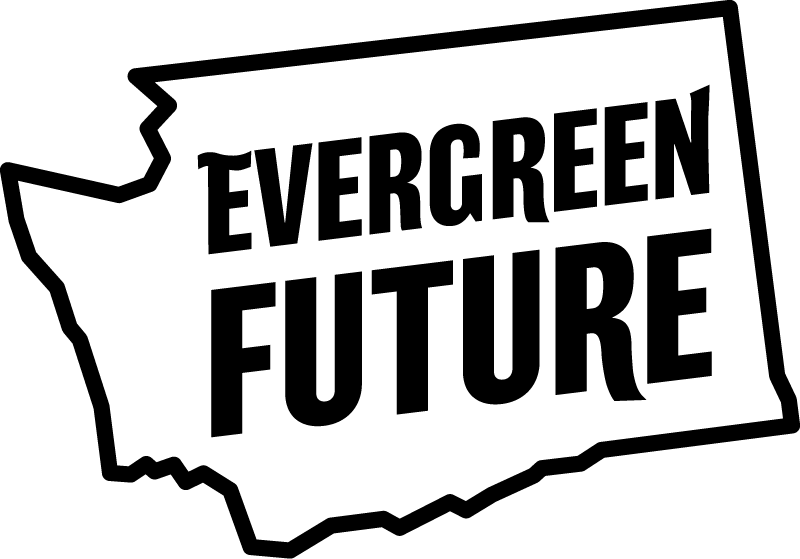
Act on Climate
Everyone deserves clean air, convenient transportation, living wage jobs, and communities that are healthy and affordable. Scientists say we have a narrow window to cut our pollution to avoid the worst impacts of climate change, and Washingtonians are already paying the price of climate change. By acting now, we can reduce pollution, expand a climate-smart workforce, and achieve net zero emissions or beyond by 2050.
Transportation & Land-Use
Transportation is our largest source of climate pollution and affects all communities. We must update our transportation system to be clean, accessible, connected to affordable housing, and supported through strong public transit options.
Accelerate the use of clean vehicles for light and heavy-duty vehicles and public fleets
Pass policies that reduce pollution from transportation sources…
Local
…such as equitable electrification efforts and vehicle miles traveled reduction priorities
Fund and prioritize transportation services, including multimodal options, that increase accessible and safe travel modes
Protect communities by supporting wildfire preparedness and community resilience, including by promoting emergency planning, home hardening, and land use planning to reduce development pressure in the wildland urban interface
State
…including fuels; e.g. a Clean Fuel Standard
Modernize transportation funding systems and investments to incorporate a climate and equity lens and create jobs across the state
Add a climate goal to the Growth Management Act
Natural Climate Solutions
Natural climate solutions protect public health, local economies and quality of life for communities. We must invest in solutions that increase carbon sequestration and provide resilient defenses against fire, flooding, and sea level rise.
Set targets and increase investments for carbon sequestration in forest, agricultural, and coastal lands…
Local
…including through avoided conversion of forest, reforestation, sustainable forest management, ecosystem restoration, and regenerative agriculture
Plan and seek funding for wildfire resilience and risk reduction, focused on restoring healthy, ecologically resilient forests
State
…and require state agencies to use their authority to increase carbon storage in natural systems
Fund wildfire resilience and risk reduction
Buildings
Buildings are the fastest growing source of climate pollution. Washingtonians need public and private buildings that are healthy, safe, efficient, and run on clean energy.
Local
Invest in weatherization programs, establish energy-efficient and fossil free residential and commercial building rules, and maximize built environment investments in a way that results in high quality jobs, reduction in emissions, and does not cause displacement
Adopt procurement policies for public works that support use of low-carbon building materials, such as FSC certified or climate-smart wood products
State
Expand weatherization programs, standards for new construction, and retrofit buildings to generate clean energy to create jobs, lower utility costs, and reduce emissions
Adopt a Buy Clean, Buy Fair policy to support public and private use of low-carbon materials, create good jobs, and support manufacturers in Washington State
Clean Energy & Fossil Fuels
Washington must accelerate an equitable and just transition to clean energy that creates good, living wage jobs. We know we can’t build that future by locking ourselves into the fossil fuel infrastructure of the past.
Increase and strategically invest public funds in our clean energy economy…
Local
…such as building retrofits, weatherization, job training, and manufacturing
Establish bans on new fossil fuel terminals and the expansion of existing terminal facilities.
Ensure the comprehensive review of any fossil fuel terminal and other significant energy proposals using best available science, integrating community input, and upholding Tribal Sovereignty
State
… in urban and rural communities, such as building retrofits, weatherization, and research & development
Prevent Washington from becoming an export hub for coal, oil, and fracked gas




